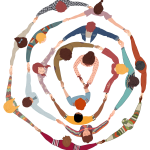Opening Script

Today we are going to ask about your experiences with microaggressions in the workplace. These may be microaggressions you have committed, witnessed, or experienced. The purpose of this focus group is for us to identify some of the highest-yield scenarios to incorporate into a new simulation curriculum on responding to microaggressions as a bystander. We will not exactly replicate any individual’s specific example for a simulation scenario, and our goal is to devise scenarios that address common, generalizable challenges. However, it is possible that a simulation scenario will feel recognizable to someone who witnessed a specific event with a similar theme, or that we will use phrasing heard in this session.
- All focus group participants will be invited to review a draft of our proposed scenarios before they are used, to provide feedback. This invitation will come via email and have a two-week deadline for responding after being sent.
- The curriculum will provide learners with simulated practice responding to microaggressions as a bystander. So, we will ask questions about context and specific scenarios. This is an information gathering session to inform the curriculum development, and is not research. We will not be video or audio recording this session, though we will be taking detailed notes.
- We ask that during this focus group, you adhere to the same community agreements we use in our Education for CHANGE sessions. Each of you has a paper copy of these agreements to review now.
(pause)
Are there any questions about these agreements? - This will be a moderated session. Participation is voluntary. This session will last one hour. We encourage everyone to participate, as we hope to include a variety of perspectives. In the interest of time, we may have to redirect conversation or interrupt a story. Likewise, we may need to directly invite some individuals to join the conversation. If asked a direct question, you are allowed to decline.
- As discussed in Education for CHANGE, discomfort is an expected and necessary part of DEI work, particularly for those with privileged identities. If at any time the content of this discussion becomes traumatizing or harmful to you, you may leave. You will still be eligible for the [incentive].

Questions:
 We are defining microaggressions as “Everyday slights, indignities, put downs and insults that Black, Indigenous, and other People of Color (BIPOC) and others who have been historically marginalized experience in their day-to-day interactions.” These tend to be subtle, unintentional and/or indirect. They often occur in situations where there could be alternative explanations, yet still can cause harm. They can represent unconscious believes and are a behavioral expression of bias.
We are defining microaggressions as “Everyday slights, indignities, put downs and insults that Black, Indigenous, and other People of Color (BIPOC) and others who have been historically marginalized experience in their day-to-day interactions.” These tend to be subtle, unintentional and/or indirect. They often occur in situations where there could be alternative explanations, yet still can cause harm. They can represent unconscious believes and are a behavioral expression of bias.
- What made you decide to volunteer for this focus group today?
- We want to make sure we’re all working with a shared understanding. We just defined microaggressions. Does anyone have a different definition of microaggressions or additional clarification you’d like to share?
- Where have you learned about microaggressions in the past?
- For faculty: Is supporting residents in intervening something you’ve seen and feel
comfortable doing? - Using that definition of a microaggression, can you describe situations where you have witnessed or experienced microaggressions?
- When you witnessed or experienced those microaggressions, how did you react? How confident or comfortable did you feel intervening?
- What factors make it feel easier or more difficult to intervene?
- What types of microaggressions do you most frequently encounter in your workplace?
- What situations do you find it easiest to respond to? Most difficult?
- Are there other types of microaggressions or situation where you have experienced microaggressions that you’d like to share?
- When you witnessed or experienced those microaggressions, how did you notice others around you reacting?
- (If a witness) How did you witness other individuals supporting- or not supporting- the individuals impacted by the microaggression (recipient, intervener)
- (If experiencing) If you experienced those microaggressions, how well did you feel others present, the unit, department, and/or institution at large supported you?
- How well has your training prepared you to interrupt microaggressions?

Closing
Disclosing this sort of information can be difficult. Experiencing and even seeing things that are harmful can bring up some complicated feelings. Before we end, we want to create some space to acknowledge and talk about any emotions you may be experiencing. If you’d like to share, please feel free.
Learners should be reminded about program resources they may reach out to should they need additional support

